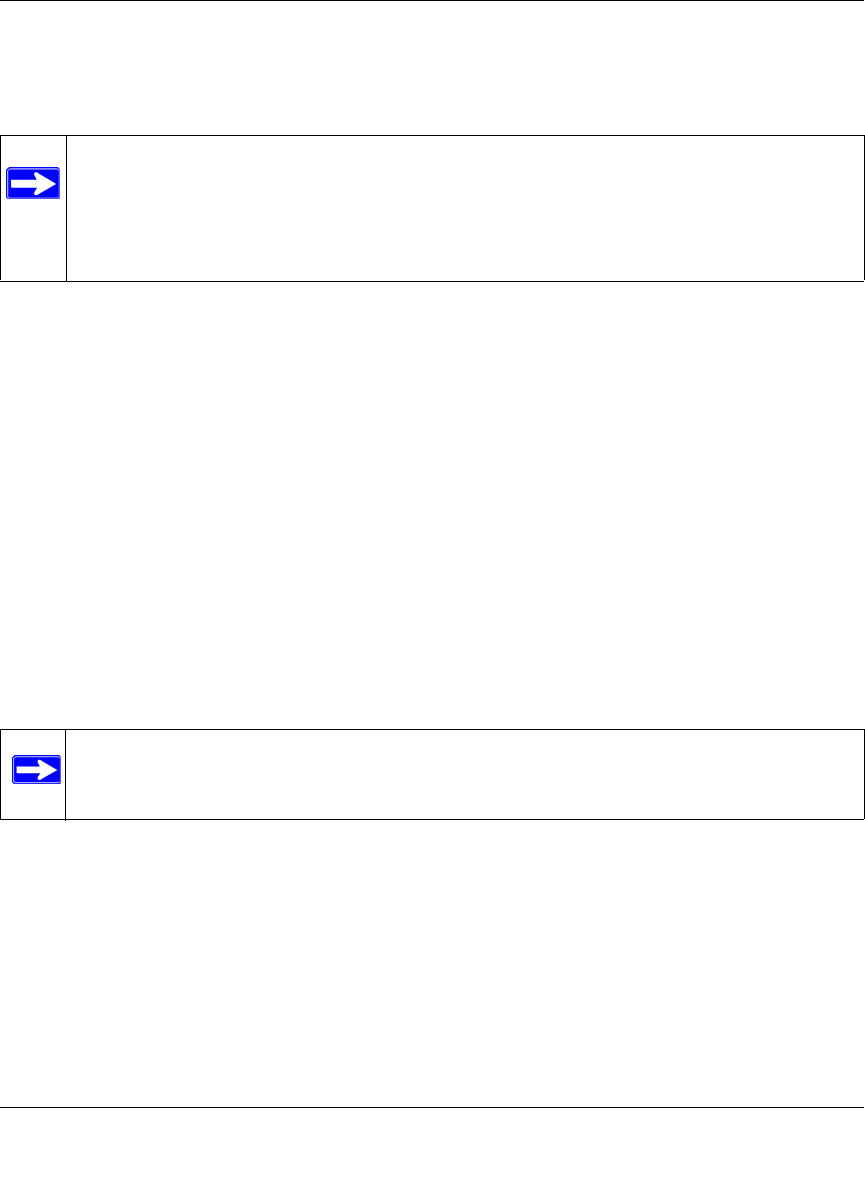
Wireless Cable Modem Gateway CG814WG v3 Reference Manual
Content Filtering and Firewall Rules 3-7
v1.0, June 2007
game server) visible and available to the Internet. The rule tells the gateway to direct inbound
traffic for a particular service to one local server based on the destination port number. This is also
known as Port Forwarding.
Considerations for Port Forwarding
• If the IP address of the local server PC is assigned by DHCP, it may change when the PC is
rebooted. To avoid this, you can assign a static IP address to your server outside the range that
is assigned by DHCP, but in the same subnet as the rest of your LAN. By default, the IP
addresses in the range of 192.168.0.2 through 192.168.0.9 are reserved for this.
• Local PCs must access the local server using the PCs’ local LAN address (192.168.0.XXX, by
default). Attempts by local PCs to access the server using the external WAN IP address will
fail.
Remember that allowing inbound services opens holes in your firewall. Only enable those ports
that are necessary for your network. The following are two application examples of inbound rules.
Port Blocking
You can use this screen to block outbound traffic on specific ports.
• Active Filters: This table displays a list of ports that are currently blocked.
• Add Predefined Service: To block outbound traffic, select the service you would like to block
from the drop-down list of predefined services. Click Add.
• Add Custom Service: If the service you would like to block is not in the predefined list, you
can add a custom service. Enter the range of ports you would like to block and select whether
the ports are TCP, UDP or Both. Click Add.
• To delete an existing rule, select its button on the left side of the table and click Delete.
Note: Some residential broadband ISP accounts do not allow you to run any server
processes (such as a Web or FTP server) from your location. Your ISP may
periodically check for servers and may suspend your account if it discovers any
active services at your location. If you are unsure, refer to the Acceptable Use
Policy of your ISP.
Note: Any outbound traffic which is not blocked by rules you create will be allowed by
the default rule.
